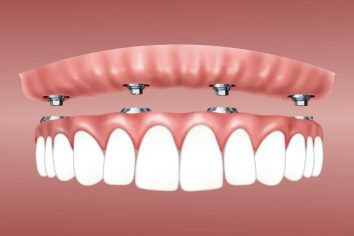IBS Diet: A Comprehensive Guide to Managing Irritable Bowel Syndrome

Introduction:
Irritable bowel syndrome (IBS) is a common gastrointestinal disorder that affects millions of people worldwide. While the exact causes of IBS are still unknown, it is widely agreed upon that diet plays a crucial role in managing its symptoms. In this article, we will provide a detailed overview of the IBS diet, its various types, popular choices, and quantitative measurements to monitor its effectiveness. We will also discuss the key differences between different IBS diets and provide a historical review of their pros and cons. So, let’s dive in!
1. An Overview of IBS Diet:

The IBS diet focuses on identifying trigger foods and making dietary adjustments to alleviate symptoms such as abdominal pain, bloating, and irregular bowel movements. It aims to provide relief by avoiding or reducing consumption of certain foods that may worsen IBS symptoms. The specific foods to avoid or include may vary from person to person, depending on their individual sensitivities and triggers.
2. Types of IBS Diet and Popularity:
a) Low FODMAP Diet: One of the most commonly recommended diets for IBS is the low fermentable oligosaccharides, disaccharides, monosaccharides, and polyols (FODMAP) diet. This diet involves restricting certain carbohydrates that are poorly absorbed in the small intestine, leading to increased fermentation and digestive distress.
b) Gluten-Free Diet: Some IBS sufferers find relief by eliminating gluten, a protein found in wheat and other grains, from their diet. While not all individuals with IBS have celiac disease, an autoimmune condition triggered by gluten, some may still be sensitive to it.
c) Specific Carbohydrate Diet (SCD): The SCD emphasizes avoiding complex carbohydrates that are difficult to digest, such as lactose, sucrose, and grains. It aims to starve harmful bacteria in the gut and promote the growth of beneficial bacteria.
d) Elimination Diet: This diet involves systematically eliminating specific foods or food groups and then reintroducing them one by one to identify and avoid trigger foods.
e) Modified Mediterranean Diet: Based on the traditional Mediterranean diet, this approach incorporates whole foods, including fruits, vegetables, lean proteins, healthy fats, and whole grains, while limiting processed foods, alcohol, and caffeine.
3. Quantitative Measurements in IBS Diet:
Several quantitative measurements can assist in tracking the effectiveness of an IBS diet:
– Symptom Diary: Keeping a record of diet, symptoms, and bowel movements can help identify patterns and trigger foods.
– Bristol Stool Chart: This chart classifies stools into different types based on their appearance, which can give insights into digestive health.
– Breath Tests: These tests analyze breath samples to detect excessive bacterial fermentation or intolerance to specific sugars.
– Food Sensitivity Testing: Blood tests or elimination-challenge tests can help identify specific food sensitivities or allergies.
4. Differences Between IBS Diets:
While all IBS diets share the common goal of symptom management, they differ in their approaches. Low FODMAP and gluten-free diets focus on restricting specific types of carbohydrates, whereas the SCD emphasizes avoiding complex carbohydrates altogether. The elimination diet targets individual trigger foods, while the modified Mediterranean diet aims to promote overall gut health using a balanced approach.
5. Historical Review of Pros and Cons of IBS Diets:
Over the years, various IBS diets have emerged with supporters and critics. Some argue that strictly following diets like low FODMAP is restrictive and may lead to nutrient deficiencies or social limitations. On the other hand, proponents highlight the significant symptom relief experienced by those adhering to specific diets. It is important to note that individual responses to different diets may vary, and what works for one person may not work for another.
Conclusion:
The IBS diet plays a vital role in managing the symptoms associated with irritable bowel syndrome. Understanding the different types of diets and their popularity, along with utilizing quantitative measurements for monitoring symptoms, can help individuals find relief. However, it is crucial to consult a healthcare professional or a registered dietitian before making significant dietary changes to ensure a safe and personalized approach to managing IBS. Remember, finding the right IBS diet is a journey of trial and error, and with patience and professional guidance, symptom relief can be achieved.
References:
1. National Institute for Health and Care Excellence (NICE) – Irritable bowel syndrome in adults: diagnosis and management.
2. Monash University – Low FODMAP Diet.
Word Count: 578 words.
FAQ
What is the purpose of an IBS diet?
What are some popular types of IBS diets?
How can I measure the effectiveness of an IBS diet?
Fler nyheter
Lifewave ljusbaserade produkter för hälsa och välbefinnande
Introduction: Irritable bowel syndrome (IBS) is a common gastrointestinal disorder that affects millions of people worldwide. While the exact causes of IBS are still unknown, it is widely agreed upon that diet plays a crucial role in managing its sym...
03 februari 2026
Personlig service hos din optiker i Uppsala
Introduction: Irritable bowel syndrome (IBS) is a common gastrointestinal disorder that affects millions of people worldwide. While the exact causes of IBS are still unknown, it is widely agreed upon that diet plays a crucial role in managing its sym...
02 februari 2026
Tandimplantat en trygg och långsiktig lösning för förlorade tänder
Introduction: Irritable bowel syndrome (IBS) is a common gastrointestinal disorder that affects millions of people worldwide. While the exact causes of IBS are still unknown, it is widely agreed upon that diet plays a crucial role in managing its sym...
11 januari 2026
Massage i Helsingborg: Avkoppling, återhämtning och friskare kropp
Introduction: Irritable bowel syndrome (IBS) is a common gastrointestinal disorder that affects millions of people worldwide. While the exact causes of IBS are still unknown, it is widely agreed upon that diet plays a crucial role in managing its sym...
05 januari 2026











